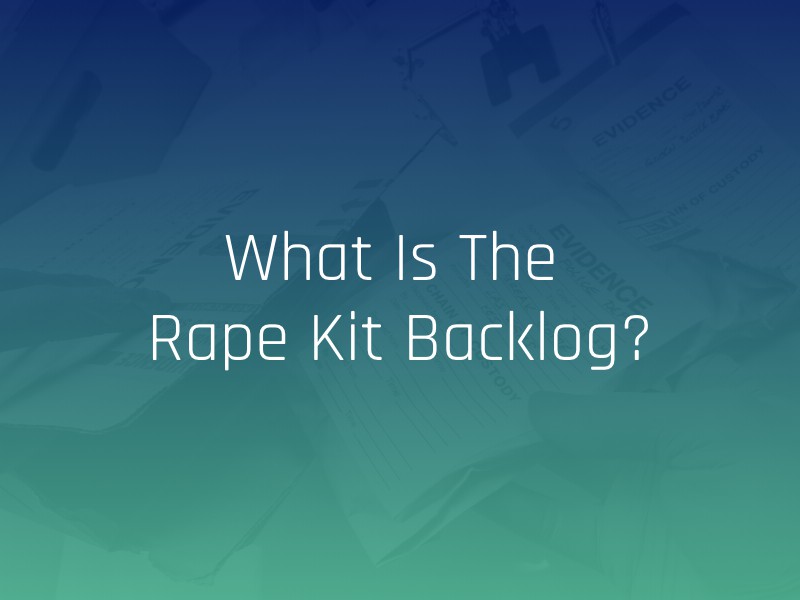After a sexual assault, advocates, experts, and online resources encourage survivors to visit a local hospital or medical center to receive a sexual assault forensic exam, also known as a rape kit. However, these health centers can fail to test many of these kits — leading to a significant backlog that survivors may have to wait for professionals to wade through before they can seek justice. Many barriers contribute to the rape kit backlog, including a lack of funding and trained hospital personnel.
The Rape Kit Backlog: A Major Issue
For many survivors, collecting DNA evidence after a sexual assault is crucial to seeking justice against their perpetrators. Community and national organizations, legal advisers, law enforcement officers, and many other experts encourage survivors to visit a local hospital or medical center as soon as possible following the assault to receive a sexual assault forensic exam, also known as a rape kit.
During a forensic exam, a trained professional will take various samples to try and find DNA evidence, and will store the kit in a safe and sterile place to preserve the results. Survivors can choose to report the assault immediately and send the kit to a crime lab for testing, or they can ask the hospital to store the kit for later use as they decide how to proceed.
However, there are thousands of kits that remain stored in hospitals and crime labs across the country to the detriment of survivors. Either the hospitals failed to send the kits to crime labs for proper analysis, or the crime labs received the kits and failed to test them.
Improper tracking, lack of communication, and poor auditing of crime labs may contribute to this problem. In addition, stringent funding and a lack of adequate staff may also be the reason for this significant backlog. Without analyzing the kits that survivors need to use as the basis of their court cases, these untested exams are harmful.
What Is Washington Doing About the Backlog?
In 2019, Congress voted to renew the Debbie Smith Act — an initiative that provides funding to reduce the rape kit backlog. According to the Rape, Abuse, and Incent National Network (RAINN), the United States saw an 85% increase in forensic sexual assault exam demand since 2011, leading to an increase in the number of untested kits.
Under the Act, Congress allocates approximately $151 million in funding to state and local crime labs to process untested evidence and reduce the backlog. In addition, the Debbie Smith Act requires state to create plans to reduce the backlog in the long-term, helping more survivors seek justice and expanding the national DNA database to identify perpetrators.
Since the Act’s passage in 2004, the reduction of the backlog and the increase in available DNA evidence led to more to 192,000 matches in CODIS, the FBI’s DNA database system. According to the National Institute of Justice, the Debbie Smith Act contributes to 42% of CODIS hits — assisting with hundreds of thousands of investigations.
With the proper funding and support, crime labs across the country can continue to process and analyze these crucial kits, helping survivors seek the justice they need to heal. However, the backlog is still significant and creates barriers for survivors, forensic professionals, and medical centers alike.
While survivors may have to confront the rape kit backlog when they visit a hospital or medical center, it is still crucial to receive an exam if you recently suffered a sexual assault. By collecting this evidence when it is still available and fresh, you have a greater chance at seeking justice if you choose to report the crime in the future.
If you are still unsure how to proceed following a sexual assault, speaking to an attorney with experience advocating for survivors can help. Your Lyft sexual assault lawyer can explain the different pathways available to you, and how you may use the results of your forensic exam, even if you choose not to report to law enforcement.

